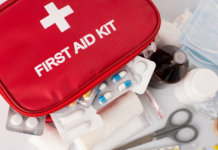Most parents voice the concern they have about their children’s health. Often, they criticize the relationship children’s health has with certain social issues. But when it comes to the millennials’ health it seems that the staggering parental concerns have skyrocketed.
It is difficult not to notice how much the world has changed in recent decades. These changes are big, and they affect all aspects of life. More importantly, they happen very fast. Smartphones, for instance, revolutionized communication and entertainment industries in less than 10 years.
Most of these changes are positive, making most things more accessible and speeding up many important developments. Our well-being benefits a lot from the age of information, too. People nowadays seem to take better care of themselves, of the foods they eat, and of their environment.

These changes are the consequence of better information flow, awareness, and personal investment in health. By logic, they should produce positive results. However, millennials seem to be facing some serious health issues at a rate higher than older generations. Therefore, let’s look at these new conditions.
Millennials Health: Top 5 Health Issues
- Mental Health Conditions
Mental health is the number one health issue for millennials. Ranging from major depression and anxiety to hyperactivity and suicide. Many of these mental health problems are on the rise in this age group.
Experts attribute most of these problems to circumstances in which millennials grew up in.
They claim that the technological advances, as well as changes in the economy, job market, and family structure, contributed the most to a higher rate of social behavior disorders and certain mental health issues.
Some research results suggest that younger members of the millennial group show even higher rates of depression, antisocial behavior, and the inner desire to self-harm. This means that if the theory about the negative effects of the rapid technological advance on the mental health of young people is true, we could see a rise in mental health problems in generation Z and other future generations.
- Substance Abuse

Again, experts state that worsened living conditions are the root of the problem. Recession and the extremely high costs of housing and education are often cited as the main reasons behind an increase in substance abuse. Millennials are, arguably, exposed to higher levels of stress in life as financial security and independence are much more difficult to reach for them than they were for their parents.
- Alcohol Abuse
Alcohol-related deaths are on a sharp rise in the last twenty years for all age groups. Proportionally, however, alcohol-induced deaths (injuries, car crashes, etc.) have doubled in the millennial age group over the last two decades.
- High Blood Pressure (Hypertension) is a high risk for Millennials Health

With the cost of hypertension treatment rising every year, young people who are already struggling to finance their health insurance could be facing other hypertension-related health problems in the future.
- Type 2 Diabetes
The rising rates of obesity and type 2 diabetes seem to be inseparable among millennials. Type 2 diabetes rates are rising faster than in any other age group in the US. With the number of obese young people increasing by more than 30% in the last 20 years, this trend is not showing any signs of stopping.
The Bottom Line about Millennials Health
While most of these health issues are serious, the positive side is the age of the millennial generation. People in this age group are still young and can take preventive measures in time before any condition becomes difficult to manage. With prevention, self-care, and a good primary health care provider the future could still be bright for millennials.




